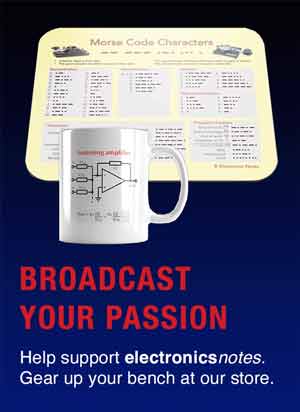VXI Chassis
- summary or overview of the VXI chassis, its configuration, connector sizes, mechanical details and operation.
VXI Technology Includes:
What is VXI test
Chassis / rack
VXIbus connectors & connections
Modules & cards
MXI
The VXI chassis is one of the main elements of any VXI system.
It provides the framework in which all the modules and cards can be held as well as providing the relevant interconnectivity along the backplane.
The VXI chassis has been standardised, although there are a number of options that can be selected.
VXI chassis mechanical configuration
The specification also includes the mechanical dimensions.
One of the key dimensions that governs the size of the chassis is the size of the cards that will be used. Three card heights are allowed:
- 3U
- 6U
- 9U
The "U" is a standard definition for module and chassis heights where one "U" is 43.6 mm.
The chassis lengths also come in two sizes:
- 160 mm
- 340 mm
This makes the A sized card 3U x 160 mm, B sized card 6U x 160 mm, C sized card 6U x 340 mm and finally the largest is the D sized card at 9U x 340 mm. A single card width is then 30.5 mm. Of these sizes the C sized card is probably the most widely used as it is sufficiently large for most instruments.
The mainframes come in various sizes. The full size version a standard 19 inch rack that can house up to 13 VXI C or D sized cards. Smaller mainframes are also available that can accommodate C sized modules.
System configuration
Module positions or slots are designated 0 to 12, slot 0 being on the left.
The controller card, required in each solution, fits in slot 0. As a result the backplane for this slot is slightly modified to support all the requirements for the controller card. The controller is responsible for performing all the resource management at start up and for controlling the system in operation. Accordingly each rack must have a controller card, in the slot itself, or a link to a controller capable of controlling the system.
VXI connectors
VXI cards can have up to three module connectors. The actual number depends upon the size of the card. They are given the designations P1, P2, and P3. A sized cards only possess the P1 connector, whereas B and C sized cards have P1 and P2, and the D sized cards posses all the connectors.
The functions contained on the connectors include the following:
- P1 VME computer bus - 16 bit data transfer, 16 Megabyte addressing, multimaster arbitration, priority interrupt.
- P2 VME 32 bit data, 4 Gigabyte addressing, 10 MHz clock, TTL and ECL bus, 12 pin local bus, analogue sum bus, module identification bus, power distribution bus.
- P3 100 MHz clock, star trigger bus, ECL trigger bus, 24 pin local bus, power distribution bus.
 Written by Ian Poole .
Written by Ian Poole .
Experienced electronics engineer and author.
More Test Topics:
Data network analyzer
Digital Multimeter
Frequency counter
Oscilloscope
Signal generators
Spectrum analyzer
LCR meter
Dip meter, GDO
Logic analyzer
RF power meter
RF signal generator
Logic probe
PAT testing & testers
Time domain reflectometer
Vector network analyzer
PXI
GPIB
Boundary scan / JTAG
Data acquisition
Return to Test menu . . .



